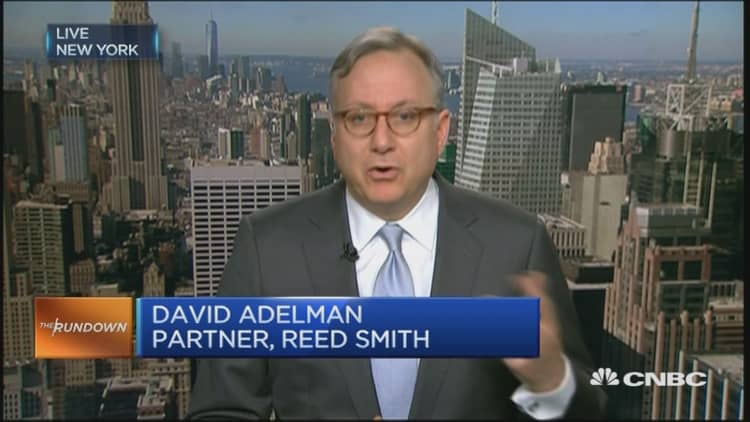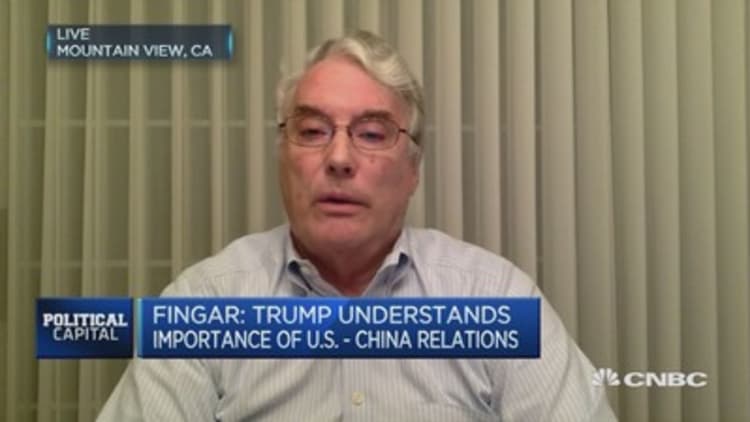Tackling the thorny issue of North Korean nuclear aggression is a key theme for Secretary of State Rex Tillerson as he tours Asia this week, but he will have to tread carefully as he leaves Japan for South Korea on Friday, followed by China on Saturday.
President Donald Trump, known to elude conventional foreign policy, is expected to seek out new solutions to reign in a belligerent Pyongyang, instead of continuing former President Barack Obama's strategy of economic sanctions. Speaking in Tokyo on Thursday, Tillerson highlighted the need for a fresh approach, acknowledging that two decades of American efforts to denuclearize North Korea have failed.
But while Tokyo may be open to a more forceful stance, the same isn't true for Beijing and Seoul.
South Korea's new president and Chinese sovereignty concerns could emerge as key obstacles to Washington's goal of a unified, confrontational stance against North Korea.
China and secondary sanctions
While Trump has yet to publicize his North Korea strategy, many believe he could focus on secondary sanctions, i.e. focusing on companies who do business with Pyongyang.
This particular type of punishment is fundamentally defensive in nature, according to Stephan Haggard, visiting fellow at the Peterson Institute of International Economics. It's an effort to protect the U.S. and its allies against North Korean capabilities, rather than bringing Pyongyang back to the bargaining table, he explained in a recent note.
Secondary sanctions would likely feature in Tillerson's talks this week, a senior U.S. State Department official said at a March 10 press briefing.

But that may be problematic for Sino-U.S. ties, which are already strained from Trump's trade and currency rhetoric.
Beijing is a traditional ally of Pyongyang and several Chinese firms regularly buy goods from North Korea — a matter that's long been a concern for Washington. In December, Obama's administration sanctioned Dandong Hongxiang Industrial Development for using front companies to avoid sanctions.
Chinese Foreign Ministry spokesman Geng Shuang has previously stated that while Beijing is willing to cooperate, it opposes any country extending the jurisdiction of its domestic laws internationally.
Earlier this month, Chinese telco ZTE admitted to violating American export controls and got slapped with $1.19 billion in penalties — the biggest criminal fine in a U.S. sanctions case.
The case is notable in that ZTE acknowledged culpability and Beijing's response was muted, said Haggard. If Chinese government officials were involved, it would be a good sign for the future of secondary sanctions, he continued.
Tillerson may also start a conversation around the idea of Beijing enforcing more sanctions against North Korean imports, but that will require a lot of cooperation from Chinese officials, noted David Adelman, former U.S. ambassador to Singapore and partner at law firm Reed Smith.
The mainland recently suspended North Korean coal imports, but it's traditionally been reluctant to pursue stringent punishments that could send millions of North Koreans fleeing to China's border.
"Washington's view is that China is North Korea's chief enabler," said Jeff Kingston, director of Asian studies at Temple University Japan. Right before China banned North Korean coal imports, they ramped up coal purchases worth $180-190 million and then imposed the ban, he noted. "So, it doesn't seem like China is on board with sanctions."

New South Korean policy
Left-leaning politician Moon Jae-In, seen as the front-runner for South Korea's presidential election on May 9, has urged for friendlier inter-Korean relations and criticized previous conservative governments for their heavy-handed, pro-sanction approach to North Korea.
"The likely new president opposes hardline approaches, he wants more engagement and isn't keen on accelerated deployment of THAAD," said Kingston, referring to the controversial American anti-missile technology. "Tillerson has a real tightrope to walk there."
For now, strategists agree that Tillerson's job is merely setting the stage for more concrete talks next month when Chinese President Xi Jinping meets Trump at a scheduled summit in Florida.

